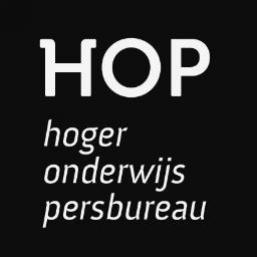
Ministers want oversight of corporate payments to doctors and professors
In the next few weeks, all professors must disclose their financial ties to business and other backers. In healthcare, there will even be legal requirements, writes the outgoing cabinet.
In recent years, there have been regular reports in the news that companies are buying influence on scientific research. In Amsterdam, for example, a professor was secretly paid for years by the real estate industry to conduct research on tax exemptions for that sector. Other professors were discredited because of unreported ties to the fossil fuel industry or the hydrogen lobby.
The medical world is equally concerned about this. In Zwolle, a criminal investigation of doctors who concealed their financial ties to the medical industry has been ongoing since 2022.
This kind of “external” influence is therefore keeping both the Ministry of Education and the Ministry of Health busy. On Friday and Monday, they informed the Senate and House of Representatives that they expect more transparency in the near future.
Education Minister Robbert Dijkgraaf relies primarily on the sector itself in this regard. He writes to the Senate that he expects “the disclosure of external funding of ordinary chairs this month,” which he agreed on with the university umbrella body UNL.
Healthcare
Medical Care Minister Pia Dijkstra is well past the stage of self-regulation, she wrote to the House of Representatives on Monday. She has announced legislation that will oblige doctors and researchers in the healthcare sector to request prior permission from their boards if they want to work for the medical industry.
This will give the board a better picture of money flows within the hospital. This is necessary because the current Transparency Register of hospitals and the medical industry is incomplete. Dijkstra is working on legislation to make participation in this register mandatory, requiring doctors and researchers to report any income over €500.
The registry is not easily searchable, either. For example, you can only find a doctor with a BIG number or with the Chamber of Commerce number of his organization. This, too, must be improved. Healthcare providers will soon be listed by name.
No names
Names are not always listed in the registers previously published by universities. Last year they published lists of the financial backers of endowed professors online. Five universities listed only the name of the chair held by a professor.
That makes searching more difficult. Scientific publications often contain only the name of the professor. If you want to google who contributed to a research project, you will not find their names on the lists of the universities in Delft, Maastricht, Rotterdam, Tilburg, or Utrecht, according to a survey by the Higher Education Publication Office (HOP).
Universities publish these lists at the insistence of the House of Representatives. The latter was concerned about the independence of scientific research, especially because of the large number of extraordinary professors. They are often employed by a company and “loaned” to the university one or two days a week.
Ordinary professors
The House of Representatives also wants to know what “public” funding ordinary professors receive. Universities complained to the ministry last year that they do not know exactly what the definition of “public funds” is. They have since agreed to also disclose the “private” funding of ordinary professors for the sake of clarity, says a spokesman for Universities of the Netherlands. Universities do not publish this in a central register, as in healthcare, only on their websites.

